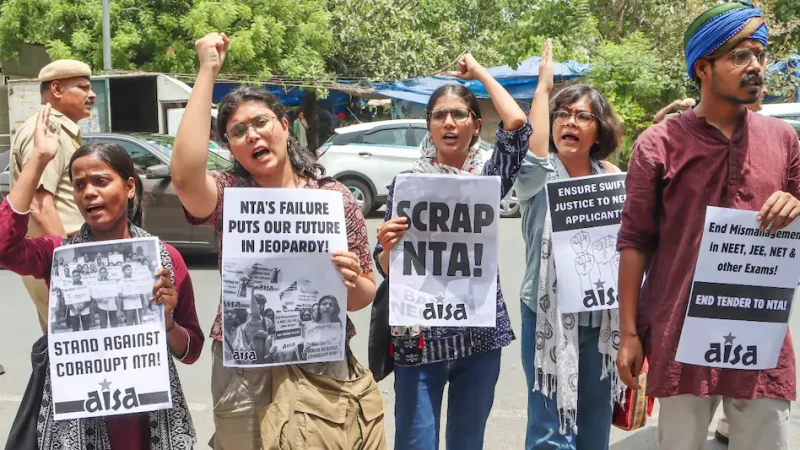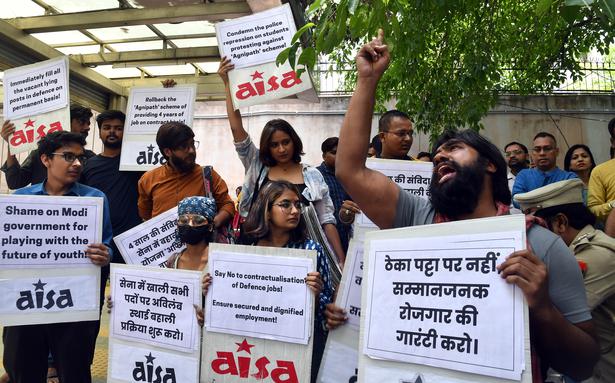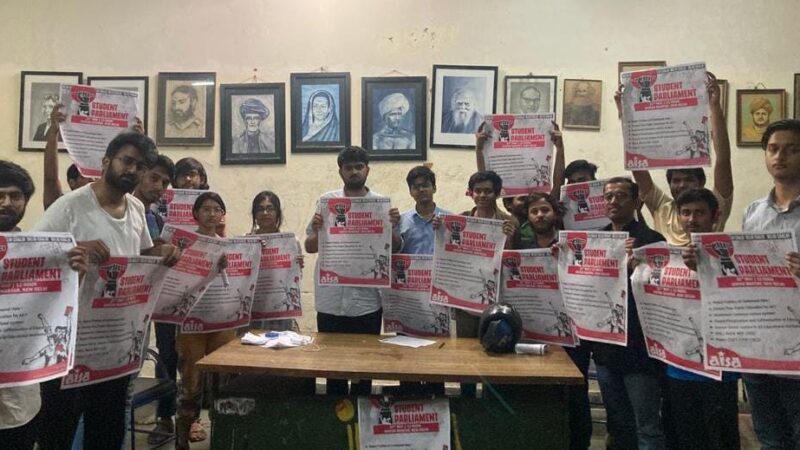Why are farmers protesting these laws?

What are the three farm laws?
The Modi Government promulgates three new Farm Laws in September 2020, which are as follows:
The Essential Commodities (Amendment) Ordinance 2020 lifts the restrictions on hoarding essential commodities like cereals, pulses, potatoes, onions, edible oilseeds, and oils.
The Farmers Produce Trade and Commerce (Promotion and Facilitation) Ordinance 2020 lifts the restrictions on trading farmers’ produce beyond the physical premises of APMC markets (mandis). It prohibits State governments from levying any market fee, cess or levy outside APMC areas.

The Farmers (Empowerment and Protection) Agreement of Price Assurance and Farm Services Act, 2020 introduces a framework for contract farming, based on contracts between farmers and corporations. It does not provide any mechanism for fixing prices of produce.
Why are farmers protesting these laws?

Farmers all over India are protesting these laws. Their grounds are that these laws:
- change the whole face of agriculture in India, putting farmers at the mercy of companies/corporations, and freeing the Government from responsibility towards agriculture. The laws amount to Company Raj in farming.
- that affect farmers in such drastic ways were passed hurriedly during Covid-19, without a physical vote in Parliament, and without any consultation with farmers’ organisations. The Government “found opportunity in calamity” as the PM said, and took advantage of Covid-19 to subvert democracy and impose anti-farmer laws on farmers
- dismantle the existing framework of Minimum Support Price and APMCs (mandis), and allow the companies to hoard essential commodities and thus monopolise and control markets. Farmers have been agitating to demand guaranteed MSP at one and a half times the input costs; government procurement of produce and expansion and improvement of the APMC system. Instead, the Government is abdicating responsibility for paying MSP and for procuring farmers’ produce, and paving the way for the demise of the mandis.
- weaken India’s federal structure, by preventing State Governments from protecting farmers
- will eventually end up evicting farmers from their land, and will make them virtual slaves of agri-business companies
- impose Company Raj in India, preventing any citizen from approaching courts against any wrongdoing done by any officer of the Central or State Governments under this law! This means that citizens cannot seek justice any government officer who is corrupt and favours corporate interests over the interests of farmers and citizens, because the offending officer can claim he was acting “in good faith” to implement the farm laws! This is basically an imposition of Emergency and a law to protect and promote the corrupt nexus between companies and government.
But won’t the new laws give farmers freedom of choice and freedom from the APMC monopoly? Won’t the resulting competition bring better market prices for their crops?
The Government claims that thanks to the new laws, farmers can get a higher price than the MSP outside the regulated APMC markets; and if they don’t, they can choose to sell their produce at MSP inside the regulated APMC markets.
Facts belie this claim:
- Most crops which are not procured by the Government are already sold in the open market – and markets usually bring lower prices than the MSP.
- Only 36 per cent of farmers’ produce is sold in the mandis and the remaining is sold outside to private trade.
- The Government announced MSP for 23 crops but Government procurement at the fixed MSP inside the APMC markets mainly took place only for paddy and wheat (and some cotton, soyabean, pulses, mustard).
- The market prices of the 23 commodities are usually much lower than the MSP announces. So, in the case of produce which are not procured by the Government, the farmer has no choice but to sell at a lower price. For example, while the MSP for maize is Rs 1,850 per quintal, farmers have no choice but to sell at the market price, which is just between Rs 800 to Rs 1,000 per quintal.
- Nowhere in India were farmers demanding that they wanted freedom to sell outside the APMC mandis (they already had this freedom)! Markets failed the farmers, and that is why they were demanding state procurement of all crops at an MSP that is fixed at one and a half times the input costs (i.e 50% profit over C2 (Cost that includes land rent along with other costs). Instead, the Government is taking away even the existing MSP and APMC mandis!
Moreover, more than 80 per cent of India’s farmers own less than 2 hectares of land. These small farmers cannot afford infrastructure to store or transport the crops (unless the crops are procured by the government), so they are under pressure to sell it before it spoils. Only by selling immediately after harvest can they afford to pay off their debts, and buy inputs for the next crop. With such a tight deadline, they go to the nearest mandi to sell the crop. If there are no mandis and MSP, the farmers will be forced to make a distress sale to corporations who can buy from their doorstep.
So, far from giving farmers “freedom” to sell to corporations, the laws will put farmers at the mercy of the corporations.
(An abridged version of the Cover Feature published in Liberation, January 2021)





